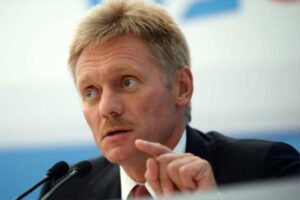He indicated that both the US Secretary of State, Antony Blinken, and the Secretary General of the Alliance, Jensv Stoltenberg, “were absolutely unequivocal in their rejection” of the main concerns outlined by Moscow.
According to the official, it cannot be said that Washington and the Euro-Atlantic bloc took Russia’s proposals into account in their responses —not yet publicly disclosed—, nor that they showed a willingness to consider their concerns.
Foreign Minister Sergei Lavrov warned that the US response does not contain a positive reaction to the main theme of the proposal: the need to prevent NATO’s expansion to the east and the deployment of attack weapons that could threaten Russia.
Ironically, he pointed out that Washington’s position on the documents presented by his country allows one to trust in starting a serious conversation only on secondary issues.
On January 26, the United States and the military body gave Russia their views on the proposed security commitments demanded by Moscow and, among others, rejected its demand to stop the acceptance of new members of the Alliance among its neighboring countries.
According to Blinken, the text includes the concerns of the White House, its allies and partners about Russia’s actions that allegedly undermine security.
He said the document contains an initial and pragmatic assessment of the concerns raised by Moscow and the US proposals to discuss in areas where both countries are able to find common ground.
He stated that the US position was coordinated with Kiev and assured that his nation will continue to provide military aid to Ukraine with aides and weapons.
On the subject, Stoltenberg, for his part, indicated that NATO is prepared to talk about Russian concerns about the situation in that country.
He commented that the members of the military bloc want to restore the dialogue with Russia, reopening their respective offices in Moscow and Brussels and reactivating the already existing military communication channels.
According to the military chief, NATO proposes to undertake serious consultations on arms control, including nuclear, intermediate and short-range land-based missiles.
(Taken from Orbe)










